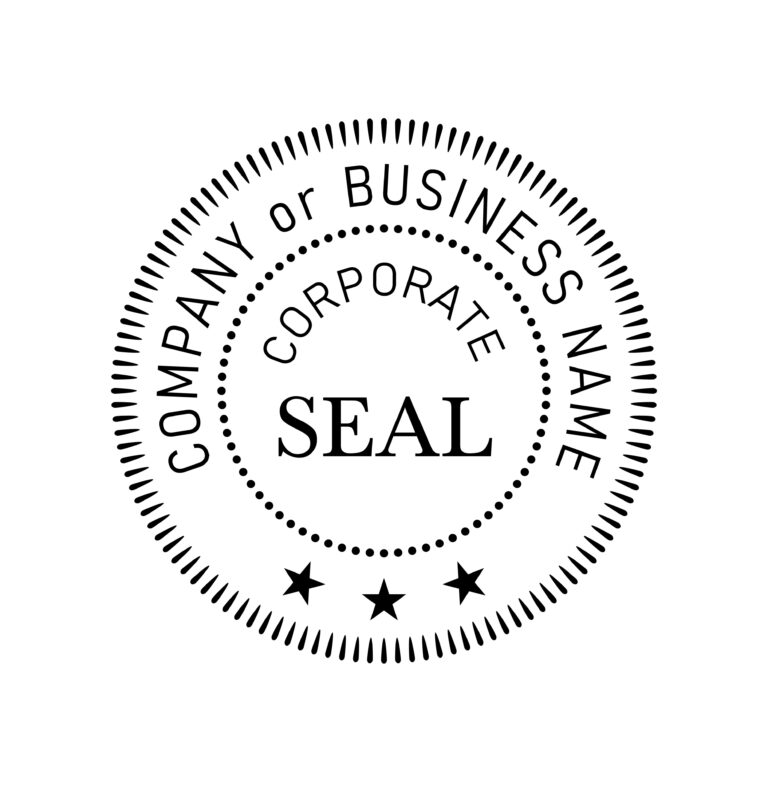In Switzerland, a Sàrl or GmbH is a legal form of limited liability company. Sàrl/GmbH is the acronym for “limited liability company”. This structure is similar to the SARL or LLC (Limited Liability Company) found in other countries.
Here are some key features of a Swiss LLC in Switzerland:
– Limited liability: The partners of an Swiss LLC have limited liability, which means that their liability is limited to the amount of their capital contribution in the company. In case of debts or disputes, the personal assets of the partners are generally not exposed.
– Share capital: A LLC in Switzerland must have a minimum share capital. Currently, this minimum share capital is set at 20’000 Swiss francs. The share capital is divided into shares, held by the partners. The shares represent the participation of the partners in the company.
– Partners: A limited liability company can be constituted by one or more natural or legal persons. The partners can be of Swiss or foreign nationality. Each partner holds shares and participates in the profits and losses of the company according to his participation.
– Management: The management of a limited liability company in Switzerland is ensured by one or more managers. The managers can be chosen among the partners or can be persons outside the company. The managers are responsible for the day-to-day management of the company and for making the necessary decisions.
– Taxation: A LLC in Switzerland is subject to corporate income tax at the federal, cantonal and municipal levels. Tax rates vary depending on the canton where the company is domiciled.
– Regulations: The creation and management of a LLC in Switzerland are subject to Swiss corporate law and the Swiss Code of Obligations.
What are the advantages of a Swiss LLC?
– Capital: The minimum capital required for the creation of a Swiss LLC is 20,000 Swiss francs, which is less than that required for a corporation (SA/AG). This allows entrepreneurs to form a company with a relatively modest initial investment. However, it is important to note that the capital must be fully paid up at the time of incorporation of the LLC.
– Limited liability: The partners of a LLC have limited liability, which means that their liability is limited to the amount of the paid-up share capital, i.e. 20,000 Swiss francs. The personal assets of the partners are protected in case of debts or litigation, which offers financial security.
– Corporate name: Unlike a sole proprietorship where the name is usually the name of the owner, a Swiss LLC offers the freedom to choose the corporate name of the business. However, the word “LLC” must be added after the name of the business to indicate its legal form.
– Foundation: A Swiss LLC can be founded by a sole proprietor. Swiss law allows a sole proprietor to create a Swiss LLC on his own, which facilitates the creation of a more solid legal structure and offers better protection of personal assets.
– Tax: The Swiss LLC can benefit from tax optimization through the distribution of profits. The salary of the Swiss LLC manager is considered an expense for the company, which allows to reduce the tax on profits or at least to keep them at a lower level, depending on the specific tax situation.
– Sale of shares: Income or profits from the sale of Swiss LLC shares are not subject to income or profit tax.
–
What are the disadvantages of a Swiss LLC?
– Incorporation costs: The creation of a limited liability company entails higher incorporation costs than a sole proprietorship. These costs include the official and authenticated deeds, as well as the registration with the commercial register. These additional costs must be taken into account when deciding to form a Swiss LLC.
– Publicity: Information about the company’s organs, share capital and shares is publicly available via the commercial register. This means that the details of the Swiss LLC can be freely consulted by any interested person. This may affect the confidentiality of the partners and the company, unlike the public limited company (SA/AG).
– Management costs: The management costs of a Swiss LLC are generally higher than those of a sole proprietorship. This is due to the additional legal obligations related to the keeping of records, the holding of partners’ meetings and the preparation of tax forms. These additional costs should be factored into the financial planning of the partnership.
– Double taxation: When a person is both a manager of a Swiss LLC and a partner, he or she may be subject to double taxation. The company is subject to income and capital tax at the Swiss LLC level, while the manager is also subject to tax on his personal income and wealth. This may result in a higher tax burden for the manager compared to a sole proprietorship.
The creation of a Swiss LLC (limited liability company) in Switzerland involves several steps.
Here is an overview of the main steps and some tips to consider:
1. Drafting the articles of association: The articles of association of the company must be drafted. They must contain information such as the company name, the registered office, the corporate purpose, the share capital, the distribution of shares, etc. It is recommended that a professional, such as a Swiss fiduciary or a notary, draft the articles of association to ensure that they comply with legal requirements.
2. Share capital: The Swiss LLC must have a minimum share capital. Currently, the minimum share capital is 20,000 Swiss francs, 100% of which must be paid up at the time the company is created. The capital contributions can be made in cash or in kind (goods, equipment, etc.). The incorporation period of a limited liability company is 4 weeks.
3. Appointment of partners and management body: The Swiss LLC must have at least one partner, which can be a natural or legal person. It is possible to have several partners. In addition, at least one manager must be appointed who will be responsible for the daily management of the company. Swiss law requires that at least one manager or director be a resident of Switzerland.
4. Choice of the registered office: It is necessary to determine the registered office of the company in Switzerland. The registered office is the official address of the company and can be a personal address, a rented office or a domiciliation with a fiduciary specialized in company administration.
5. Registration in the Commercial Register: Once the articles of association have been drafted and signed, the company must be registered in the Commercial Register. This registration must be made at the Commercial Registry Office of the canton in which the company is domiciled.
6. Obtaining a VAT number: After the registration in the Commercial Register, the company can apply for a VAT number at the competent federal tax office. This number is used for the quarterly tax returns for business transactions subject to VAT.
Here are some tips to consider when creating a limited liability company in Switzerland:
– Use a professional: It is recommended to consult a lawyer specialized in business law or a Swiss fiduciary specialized in company creation and administration in Switzerland to guide you through the creation process. They will be able to help you draft the articles of association, understand the legal and tax requirements, and assist you with the administrative procedures.
– Study the market and the feasibility of the project: Before creating a limited liability company, it is essential to carry out a thorough market study to evaluate the viability of your project. Analyze the competition, identify your target audience and assess the demand for your products or services. This will allow you to make informed decisions and minimize potential risks.
– Plan the business structure: Think about the structure of your Swiss LLC, including the number and profile of partners, the distribution of shares and the appointment of managers. Make sure you have strong and competent partners, and clearly define the roles and responsibilities of each person involved.
– Develop a solid business plan: Develop a detailed business plan that includes your business strategy, financial goals, marketing plan, and realistic financial projections. This will help you secure financing, convince potential investors and guide your business activities.
– Ensure good financial management: Put in place sound financial management processes from the beginning. This includes setting up a proper accounting system, regularly tracking revenues and expenses, and complying with Swiss tax and accounting requirements.
– Complete the administrative steps: Follow the legal steps to set up your business, including drafting the articles of association, registering with the Commercial Registry and obtaining a VAT number. Respect the deadlines and specific requirements of your canton. Apply for a work permit in Switzerland and make sure your company complies with the collective labor agreements for your industry. Make sure your company has all the necessary permits to operate.
– Protect your intellectual property: If your Swiss LLC is based on unique products, services or technologies, consider protecting your intellectual property by filing patents, trademarks or copyrights, if applicable. This can provide you with legal protection and a competitive advantage.
– Insure your company against risks such as work-related and non-work-related accidents, insure your equipment and property if necessary, and purchase liability insurance.
It is important to note that this advice is general and it is recommended that you consult with company formation experts for advice specific to your situation. Each company is unique and may require additional considerations depending on its industry and location in Switzerland.
Contact us to begin your initial consultation now. We would be delighted to get to know you and define with you the next steps in your project to establish a company in Switzerland.
Fill out our contact form or call us at +41(0)22 566 82 45












